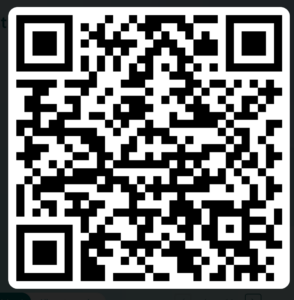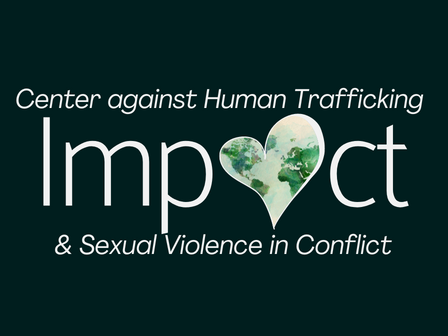Summer School: 23 June – 4 July 2025 (at Tilburg University campus)
Justice for Victims of Conflict-Related Sexual Violence and Human Trafficking?

QR Code: Registration form Summer School 2025
In short:
- For whom:
Bachelor’s / Master’s students of any discipline with a strong interest in the topic. - Taught by:
Dr. Anne-Marie de Brouwer and Dr. Eefje de Volder of Impact: Center against Human Trafficking and Sexual Violence in Conflict - Start date (minimum number of participants: 15):
23 June – 4 July (ON CAMPUS at Tilburg University) - Duration | ECTS:
2 weeks | 6 ECTS (or 168 hours) - Language of instruction:
English - Application deadline:
13 May 2025 - School/University: Outreaching Honors Program (Tilburg University)
- Course fee: €1000
– 10% discount for current Tilburg University students*
– 10% discount for students from partner universities of Tilburg University*
– 10% early bird discount until 1 April 2025*
*Combining discounts is not possible
Course description:
All around the world, numerous men, women, boys and girls suffer the harsh consequences of conflict-related sexual violence and human trafficking. Thousands of men, women and children are forced into sexual slavery or raped during conflict-situations, and/or, when fleeing conflict, are forced by human traffickers into exploitative practices en route and in the country of destination. One only needs to watch the news about what is happening today in (former) conflict areas and in the wake of the refugee crisis in Europe to see that these practices are ever present. Both phenomena are crimes that affect the physical integrity of human beings and cause gender inequality worldwide. In addressing both crimes, which take place in conflict, transitional and/or peacetime situations, a contribution is made to remedy that injustice. During this two-week course we will look into the opportunities and challenges in addressing both crimes. Among the questions we will address are:
-How can conflict-related sexual violence be investigated and prosecuted before local, national and international criminal tribunals as part of genocide, crimes against humanity and war crimes?
-Does the approach to address the business model of human traffickers (targeting the profit) contribute effectively to combatting the crime?
-What are the needs and rights of victims/survivors of conflict-related sexual violence and human trafficking to ensure justice?
-And how can these crimes be prevented? For example, how do we prevent that military peacekeepers engage in sexual violence as witnessed in the Central African Republic?
The ultimate goal of this summer course is to critically assess whether the current approaches are contributing to realizing justice.
This course includes:
-
-
- An intensive two week program of interactive lectures with group assignments;
- Interdisciplinary lecturers (De Brouwer and De Volder) who teach from both an academic and practical perspective (e.g. research and field expertise), including guest lecturers who are experts in these fields;
-
You are expected to:
-
-
- Prepare for interactive lectures through reading assigned materials;
- Be present and actively participate during the interactive lectures;
- Demonstrate the learned skills in a practical assignment at the end of each lecture day;
- Demonstrate the ability to critically approach and assess contemporary issues in relation to the phenomena of conflict-related sexual violence and human trafficking in a concluding written exam on the last day of the course.
-
Assessment:
The course grade will be made up of two parts: (1) group assignments (40% of total grade), involving, e.g.,case study discussion; country evaluation; testimonial assessment; development of preventive measures; critical assessment of preventive measures and presentation of these assignments; and (2) one individual final open book exam (60% of total grade).
Course materials:
A number of academic articles and/or book chapters will be assigned; a digital version of all the reading materials will be sent by email after registration closes, so that you can prepare for class.
Course schedule:
The structure of the course days is almost always the same. Class starts at 9:30am. Theory is explained until 12:00pm, after which you will take your lunch and work on an assignment individually or in groups. At 14:00pm, class starts again and you will present the assignment prepared. On these days, class ends at 15:00pm. On two-three days, there is no afternoon program, as you will be working on an assignment alone and/or to give you some time to prepare for the course and exam (usually days 1, 5 and 9). In addition, we aim to go on an excursion to organisations that works on addressing CRSV and/or human trafficking on one day (to be determined, but usually the International Criminal Court, a shelter or NGO supporting victims of human trafficking). The final day, day 10, will be the closing day consisting of the individual final assignment (exam), handing out of the certificates and closing drinks. The essay exam will take place from 09:30am-12:00am and we will have the certificate ceremony at 12:00pm.
Course specifics:
English proficiency (spoken and written) is required.
Applicants must have, at minimum, a profound interest in the phenomena of human trafficking and conflict-related sexual violence, and intend to participate actively throughout the course.
For this course you will receive a final grade between 1 and 10. You need a minimum of 5.5 in order to pass this course and receive 6 ECTS credits (awarded by Tilburg University).
If you do not pass the regular exam there will be the possibility of taking a resit (highest grade counts).
Please note that attendance of all classes, including taking part in the assignments and closed book exam, is mandatory in order to obtain a grade and 6 ECTS for this course. Only in exceptional cases and with good cause, you can miss a day of class. This will need to be communicated to the lecturers well in advance. A maximum of one group assignment can be missed (for which you will receive the grade 1) and will need, in order to pass, to be compensated by the other assignments and final open book exam so that the average grade is minimum 5.5.
Participants will receive an official certificate upon successful completion of the course. Tilburg University students will receive credits on their diploma supplement.
Application and registration:
Apply before the deadline: Tuesday 13 May 2025.
(10% early bird discount until Tuesday 1 April 2025)
To apply: send an e-mail to: [email protected] telling us you wish to attend the Summer School. Or register directly via our registration form via this link: https://forms.office.com/e/8xGr6rP1ey?origin=lprLink
or via the QR Code:

We aim to answer questions related to the Summer School, including of an administrative nature, within 5 working days max.
You will receive a registration form and information about payment by e-mail after e-mailing us or registering via the form that you wish to apply!
Visa, travel and accommodation:
You are responsible for organising a visa (in case of need), travel and accomodation yourself. Please do this on time. We will provide you with several accommodation options in Tilburg as suggestions (after registration and payment). For those who need to apply for a visa, we will provide you with a letter that you have been admitted to the course (after registration and payment).
Cancellation policy:
Outreaching Honors Program (Tilburg University) and Impact: Center against Human Trafficking and Sexual Violence in Conflict reserve the right to cancel this course in the event of an insufficient number of participants. In the event that the number of registrations exceeds the number of available places, a waiting list will be used.
Impact’s Terms and Conditions and Impact’s Privacy Policy.

